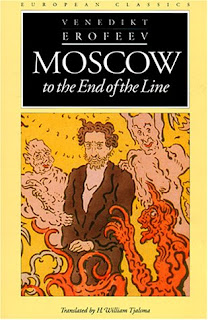The Autumn of the Patriarch
by Gabriel García Márquez
“Over the weekend the vultures got into the presidential palace by pecking through the screens on the balcony windows and the flapping of their wings stirred up the stagnant time inside”
As the citizens of an unnamed Caribbean nation creep through dusty corridors in search of their tyrannical leader, they cannot comprehend that the frail and withered man lying dead on the floor can be the self-styled General of the Universe. Their arrogant, maniacally violent leader, known for serving up traitors to dinner guests and drowning young children at sea, can surely not die the humiliating death of a mere mortal?
Tracing the demands of a man whose egocentric excesses mask the loneliness of isolation and whose lies have become so ingrained that they are indistinguishable from truth, Márquez has created a fantastical portrait of despotism that rings with an air of reality.
From goodreads.com
I dreaded the moment when I would have to write a review on
The Autumn of the Patriarch, because I’m so out of my league here, trying to describe the genius of Gabriel García Márquez. However, I’m unable to stay silent, unable not to mention probably one of the greatest and unique books I’ve ever read, one of the books that blew me away, one of the books that showed me that there could not be any other limitation in the literature other than author’s own abilities; and if an author is not afraid to break shackles that his own mind or society put on him, even the sky is not a limit.
It is probably the writing style that makes this book so unique. Márquez broke all the rules here: there are not paragraphs; there is hardly any punctuation: sentences run for five – ten pages, there are not quotes to distinguish the dialogs; Márquez switches the point of view multiple times in one sentence and sometimes in one line. I won’t lie to you, his technique intimidated me at the beginning. I was imagining that it will be a very frustrating and confusing experience that will drag for a while, despite the fact that the book it not long at all. However, what could have been a recipe for the disaster in any other hands, turned out to be an unforgettable delight in Márquez’s.
It took Márquez seven years to write
The Autumn of the Patriarch and I’m surprised it didn’t took him seventeen – to write in such style and still make everything crystal clear for the reader: whose point of view it is, what time is that, did someone said it, or it is the General talking to himself in his own head. Márquez achieved impossible with
The Autumn of the Patriarch, he managed to put in words and on the paper person’s thoughts and experience of the world as they are – we rarely think in full, grammatically correct sentences; we almost never experience the world in distinguished paragraphs; and we never put conversations in quotation marks in our head.
General of the Universe, the usurper, the patriarch, the dictator and the main character of the novel is another Márquez’ stunning achievement. In General Márquez united the characteristics and abilities of the world known dictators – Stalin, Castro, Mussolini, Kim Jong-II and many others, dead or alive. Through the whole story at one point or another, I could see one of these faces staring at me from the pages. Márquez also showed us the other side of probably any dictator’s character – the weakness, paranoia, inability to most of the human emotions and loneliness (complete and overwhelming). Márquez combined in General the best and the worst of the human nature, making it impossible for readers to have one defined emotion toward him (hate or pity) and also making General a real person, not some one-dimensional caricature.
There are so much more in this novel that can’t be explained or described. There are so much more that everyone should experience and feel for themselves. At times,
The Autumn of the Patriarch read like a dream, completely distant and enchanted. At other times, it reminded to me
Hieronymus Bosch’s triptych
The Garden of Earthly Delights. And at all times it was an unforgettable experience. I would recommend this book to everyone, who is not afraid of the challenge, because this book can be quite demanding sometimes when Márquez is drowning you in words, metaphors, similes and magical realism as whole. I would recommend this book to everyone who wants an amazing, breathtaking, overwhelming and magical experience. After all this is the only book that describes how the sea is sold, put on the ship, moved to another location and what left after in its place.

















